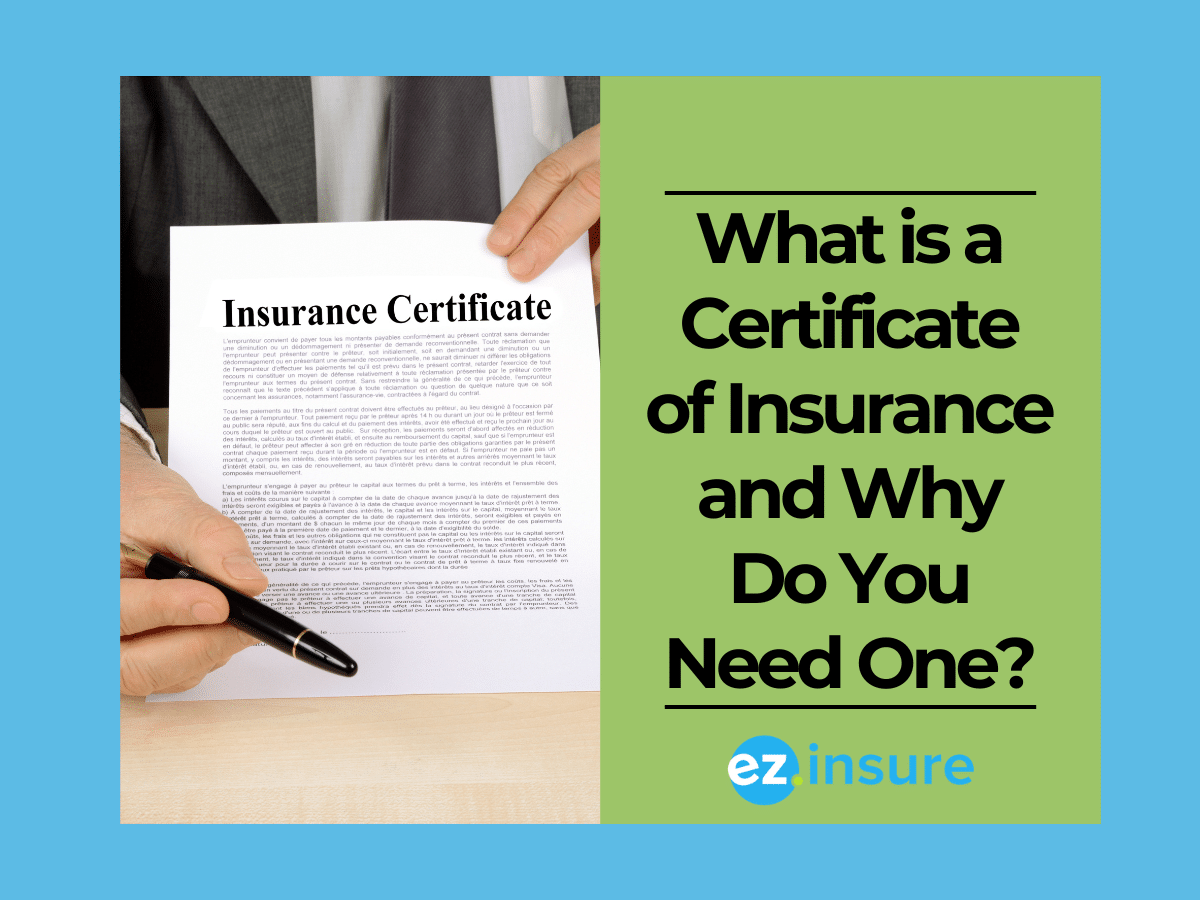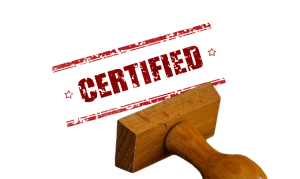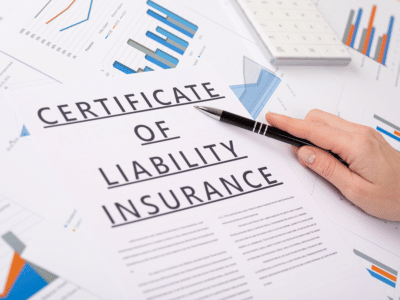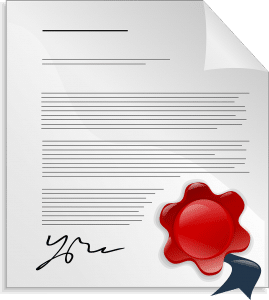Table of Contents
-
What is Commercial Property Insurance?
-
What Does Commercial Property Insurance Cover?
-
What Doesn’t Commercial Property Insurance Cover?
-
Why is Commercial Property Insurance Important for Small Businesses?
-
Who Needs Commercial Property Insurance?
-
How Much Does Commercial Property Insurance Cost for Small Businesses?
-
How to File a Commercial Property Insurance Claim
-
FAQs
-
Get Commercial Property Insurance
What is Commercial Property Insurance?
Commercial property insurance protects business owners and their companies from financial losses if their property and/or assets are damaged or lost. Common assets that are generally covered by commercial property insurance include buildings, furniture, fixtures, equipment, and more. No matter how big or small a business is, commercial property is a vital piece of protection, ensuring that companies recuperate quickly in the event of an incident.
What Does Commercial Property Insurance Cover?
Commercial property insurance focuses on the protection of physical assets from loss, damage or destruction, if a covered incident takes place. Here is a breakdown of the most common events causing loss or damage that are covered by commercial property insurance:
- Explosions
- Fires
- Smoke Damage
- Storms
- Wind
- Hail
- Water Damage (does not include flooding)
- Equipment breakdown or malfunction
- Theft
- Vandalism
- Riot/Civil Commotion
- Vehicle Damage
If one of these events takes place on your property, the following types of assets are generally covered:
- Buildings and/or structures owned by the business
- Personal property (laptops, computers, furniture, etc.)
- Inventory
- Supplies
- Documents
- Equipment/Machinery
- Landscaping
- Signs
- Fences
What Doesn’t Commercial Property Insurance Cover?
The following events and assets are usually not covered by commercial property insurance:
- Flood Damage (requires a flood insurance policy)
- Earthquake Damage (requires a separate policy)
- Hurricane Damage (supplemental coverage such as flood insurance is required).
- Employee Injury (workers’ compensation insurance is required).
- Employee Theft
- Intentionally Caused Damage
- Routine Damage (wear and tear)
- Vehicle Damage (commercial auto insurance is required)
Why is Commercial Property Insurance Important for Small Businesses?
A company without commercial property insurance risks facing major financial issues if property and/or items get damaged during a covered event. This valuable coverage offers several advantages:
- Pays For Expensive Repairs and Replacements: The policy pays to fix or buy new company assets that break down, get destroyed or lost.
- Enables Businesses to Stay Open: By covering the cost of equipment or repairs, businesses avoid extended periods of down time.
- Peace of Mind: Owners and employees can focus on running a successful operation, instead of worrying about unforeseen events and the financial impact the events could cause without the presence of commercial property policy.
Who Needs Commercial Property Insurance?
A better question might be—who doesn’t need commercial property insurance? But in all seriousness, any business that owns, rents or leases physical space or valuable business assets should invest in a commercial property protection plan. Here’s a list of some businesses that commonly obtain commercial property insurance:
- Restaurants, food trucks, and caterers
- Retail Stores
- Office-Based Businesses
- Beauty businesses
- Professional Services
- Fitness Studios and Gyms
- Warehouses
- Distribution Centers
- Any Small Business with expensive inventory/equipment
If you own, rent or lease business space, use expensive machinery and equipment, or simply depend on physical property to run a successful operation, this coverage is essential to avoid monetary setbacks in the case of an unexpected, damaging event.
How Much Does Commercial Property Insurance Cost for Small Businesses?
On average small businesses usually pay between $500 and $2000 annually. There are a number of factors contributing to the cost of policy such as:
- Location: Areas deemed more dangerous may cause premiums to increase. This includes frequent natural disasters or high crime rates.
- Type of Assets and/or Property: The bigger the building or property, and the more valuable the assets, the more expensive the premium will be. Additionally, older structures tend to cost more to insure as opposed to more recently built buildings.
- Number of Facilities: It will cost more to insure a property with multiple buildings or facilities.
- Safety Features: Properties including safety features like smoke detectors or security systems may be rewarded with lower rates.
- Building Material: Buildings constructed with certain materials such as fire-resistant materials will generally cost less to insure.
- Industry: High-risk industries like manufacturing or construction may see higher prices.
- Deductibles and Coverage Limits: Higher deductibles usually lower premiums costs, while higher coverage limits increase premium costs.
- Claims History: Businesses with a history of property claims may see higher rates.
How to File a Commercial Property Insurance Claim
If an incident occurs causing your business property and/or assets to be damaged, destroyed or lost, it’s important to take the following steps:
- Document the Damage: Take clear photos of the damage, and gather any other evidence that provides proof of the event which occurred. Keeping detailed records is key.
- Contact Your Insurer: Get in touch with your insurance provider as soon as possible. The earlier you report the incident, the better.
- Provide Proof: Send all relevant documents to the insurer. This includes both proof of the damages incurred, as well as receipts and bills showing the value of the damaged or lost items.
- Get Assessed: The insurance adjuster will need to visit your property to assess all losses or damages in person.
- Receive Payment: Once the claim is approved, you’ll receive funds to fix or replace all affected items or property.
FAQs
Can Commercial Property Insurance Be Combined with Other Coverage?
Yes, it is quite common for commercial property insurance to be combined with other protections to form a comprehensive plan. Common plan combinations include:
- Business Owners’ Policy (BOP): Combines business interruption insurance, general liability, and commercial property coverage.
- Commercial Package Policy (CPP): Gives businesses the option to customize their package with a number of coverage options to protect against common property and liability risks.
- Equipment Breakdown Insurance: When combined with commercial property, it adds an extra level of protection, covering repairs or replacements to specific equipment like HVAC systems, boilers, pressure equipment, security systems and more.
Combining policy is a great way to ensure there are no holes in your protection plan, while simultaneously offering cost savings.
Does Commercial Property Insurance Cover Leased Property?
Commercial property can cover lease property. Whether or not this is the case for your leased property depends on the specific terms of your lease agreement. With that said, in many cases the owner of the property is responsible for insuring the structure, while the tenant is responsible for insuring their businesses personal property.
How Can I Lower the Rate of My Commercial Property Insurance?
Here are some cost saving measures you can take to ensure that you get the best price on your commercial property insurance policy:
- Set Up Security Defenses: Investing in things like security cameras or fire hazard equipment to lessen potential hazards could reduce your premium.
- Combine Policies: Consider purchasing a business owners’ policy, or another combined insurance package, to gain supplemental protection at a reduced price.
- Select a Bigger Deductible: Increasing your deductible usually reduces monthly premiums.
- Regularly Assess and Review Coverage: Review your current coverage on an annual basis to ensure that you’re not overspending for coverages that aren’t necessary to your operation.
How Do I Choose the Right Commercial Property Insurance Plan?
When deciding on which policy to choose it’s important to take account of the following:
- The specific risks associated with your industry and business.
- The total value of all combined assets, such as buildings, equipment and inventory.
- Coverage limits, deductibles and premiums that fit your budget.
- Whether or not your business requires additional coverage options like protections against hurricanes, floods or earthquakes.
While all of these factors are crucial to consider, we encourage all business owners to consult with an insurance professional to ensure all your needs are met, and the cost of protection stays within your budget.
Get Commercial Property Insurance Today, with EZ.Insure!
EZ.Insure is a leader in the small business and commercial insurance space for a reason. Our simple platform makes it easy to compare coverage options side by side, receive free quotes, and work with a licensed agent, so you can secure the best policy tailored to your business needs. Don’t wait for an unexpected event to get in the way of your business’s success, instead, get covered today!
To get started, simply enter your ZIP code in the box below or give us a call at (855)-694-0047 to get your free quote!







